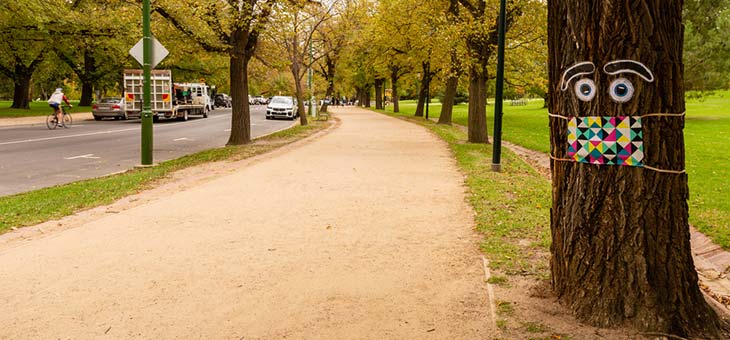Restrictions, lockdowns, business and school shutdowns, mandatory wearing of face masks.
Health officials and politicians the world over are saying only the creation of a vaccine would end the need for such actions.
And scientists across the globe are working to find one. Some say it’s a combined effort, others are calling it a race.
With infection cases still rising, the US brought to its knees, European countries such as Spain and France re-instating restrictions and many others quickly learning the price for reopening borders and businesses too soon, the quest for a vaccine remains all important.
But when will one be available?
As at 19 July, there were 23 COVID-19 vaccine candidates in clinical testing, according to the World Health Organisation (WHO).
Some of the most promising research is happening in Australia, where human volunteers are already being jabbed with potential COVID-19 vaccines to check for safety and to analyse their bodies’ immune responses.
Last week, 120 volunteers joined phase one trials of a potential vaccine developed by the University of Queensland (UQ).
In Adelaide, at Royal Adelaide Hospital, human trials have been under way for two weeks and are already showing encouraging signs.
Trials in Melbourne and Perth are also under way.
There may be many ways to combat COVID-19, but all four clinical trials in Australia are aimed at controlling the spike protein of the coronavirus – the sticky part that latches onto the human cell and infects us.
If a vaccine can work with our bodies to recognise the spike protein and build immunity against it, the coronavirus won’t be able to penetrate our cells and make us sick.
UQ’s proposed vaccine uses a ‘molecular clamp’ designed to fuse a synthetic spike protein with the ones that protrude from the coronavirus, in a process that glues three molecules together to form one complex.
UQ researchers have also developed a special ingredient called an adjuvant, which supercharges the immune system.
The combination of the clamp fused to the synthetic spike protein tricks our bodies into thinking it has detected the coronavirus, triggering a specific immune response that will, in theory, destroy the real coronavirus when it tries to infect us.
“When the virus is floating around in your system and your immune system tries to recognise it, the spike protein is the first molecule it will encounter and raise an immune response against,” Professor Trent Munro, project director of UQ’s coronavirus vaccine program told The New Daily.
“That’s what we want to mimic with our vaccine.”
Scientists at Adelaide biotechnology company Vaxine have also used a synthetic coronavirus spike protein in its proposed vaccine.
But instead of using a molecular clamp, they have added a unique type of adjuvant called ‘inulin’ which is derived from chicory.
“Inulin purified from Belgian endive is a white sugary powder that looks very much like table sugar if you saw it sitting in a bowl,” said Vaxine research director Professor Nikolai Petrovsky.
“By making inulin into these special microscopic particles, they are able to trigger the immune system and act as a turbo-charger to make it respond better to vaccines, thereby giving stronger protection.”
Prof. Petrovsky says there are no side-effects to the vaccine.
“While some adjuvants may cause people to get fevers or flu-like symptoms, ours achieves the benefits of educating the immune system but without the side-effects,” he said.
“Using synthetic proteins with our plant-based inulin adjuvant to induce strong protective immune responses against pandemic viruses is something we’ve done many times in animal and human trials over the last 15 years, so we know it works.
“It’s been very effective for SARS and MERS coronaviruses and various pandemic flu strains.”
Researchers say it still might take between 12 and 18 months for a vaccine to be approved.
While most of the world waits with bated breath for a vaccine, there are many who would refuse the jab should one become available.
A finder.com survey found that six million Australians may not choose to get a COVID-19 vaccine if one becomes available.
Just under seven in 10 Aussies (68 per cent) said they would get the vaccine, leaving almost one in three Aussies susceptible to coronavirus.
Recent US polls revealed that only 50 per cent of people in there would receive the vaccine, with another quarter wavering.
And another survey revealed that nearly one in six Britons say they would refuse a coronavirus vaccine if and when one became available, with a similar number unsure whether they would get one.
Reasons for refusing vaccination range from uncertainty about the safety of a rushed vaccine to straight up denial that COVID-19 exists.
In the meantime, for those of us who do believe in coronavirus, social distancing, handwashing, wearing masks and following government and health organisation guidelines is our best defence.
Would you be vaccinated if one became available? Do you doubt the existence of COVID-19?
If you enjoy our content, don’t keep it to yourself. Share our free eNews with your friends and encourage them to sign up.
Related articles:
https://www.yourlifechoices.com.au/health/covid19/vaccine-ready-for-human-trials
https://www.yourlifechoices.com.au/health/covid19/coronavirus-cures-that-dont-work
https://www.yourlifechoices.com.au/health/covid19/when-will-we-see-a-coronavirus-vaccine

